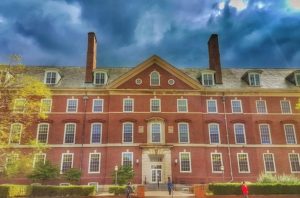Unite and Benefit the Nation With Your Knowledge, Academics!
Humanitarian and former independent presidential candidate Ralph Nader bemoans the failure of tenured American social science professors to join together and provide an informed and authoritative strategy for progressive reform in the United States. Photo by Abhinav Asokh (CC BY 2.0)
Photo by Abhinav Asokh (CC BY 2.0)
Photo by Abhinav Asokh (CC BY 2.0)
Humanitarian and former independent presidential candidate Ralph Nader bemoans the failure of tenured American social science professors to join together and provide an informed and authoritative strategy for progressive reform in the United States.
“Those of us who look for ways to get things done for the betterment of society seek such contributions from people who spend their days studying what is happening in our country, and to whom,” Nader wrote over Thanksgiving at CounterPunch. “Other than a few minor exceptions, this union has not occurred.”
“Nearly fifty years ago, a leading administrative law professor Kenneth Culp Davis—interested in governance—wrote a controversial article bewailing the near total absence of any useful contributions in this field by political scientists.”
Nader, who has spent decades trying to unite wealthy benefactors with capable, informed people in the service of progressive causes, offers a brief list of “contemporary needs that could benefit from academic specialists who […] could know how to get things moving.”
He guesses that psychologists might know how to get people to show up at the polls. Nader also imagines the creation of “small but effective civic groups,” such as full-time congressional watchdogs that would use part-time volunteers to monitor the activities of elected representatives. And he wants people with the credentials needed to influence Congress and the public to be gathered into highly visible pressure groups when, say, a new mania for war breaks out. (On this last point, Nader cites the fact that more than 300 retired high military, national security and diplomatic officials voiced opposition to the 2003 Iraq invasion. Imagine if applied social scientists had figured out how to align them with “overtly anti-war critics such as the mega-billionaire George Soros. Such a well-endowed secretariat for these highly credible, retired leaders could have widely exposed the falsifications, jolted Congress and the media and stopped the drive to this ruinous war that is erupting again in a brutal civil conflict,” Nader suggests.)
The apparent lack of will among social scientists to engage in the kind of lobbying Nader imagines has a deeper cause. The “present cultures and mind-sets” that pervade academia discourage scholars from stepping out of the university cloisters and engaging their fellow citizens. Some form of infrastructure, like that available to scientists who are “employed or retained by corporations,” could provide the financial cover scholars need to break free of this inertia.
Nader cautions academics who might find such work distasteful. There is a vast potential of unknown thrills, fulfillment and joys, he suggests. “Maybe some academics think such practical immersion is not intellectually challenging or career advancing. Recall Albert Einstein who once said that physics is simple compared to politics.”
— Posted by Alexander Reed Kelly
Your support matters…Independent journalism is under threat and overshadowed by heavily funded mainstream media.
You can help level the playing field. Become a member.
Your tax-deductible contribution keeps us digging beneath the headlines to give you thought-provoking, investigative reporting and analysis that unearths what's really happening- without compromise.
Give today to support our courageous, independent journalists.









You need to be a supporter to comment.
There are currently no responses to this article.
Be the first to respond.